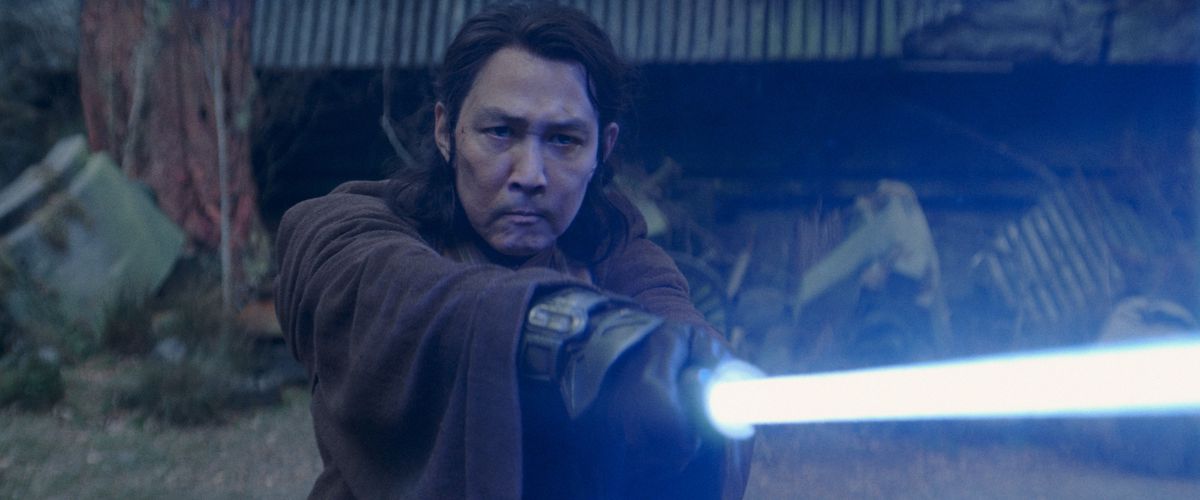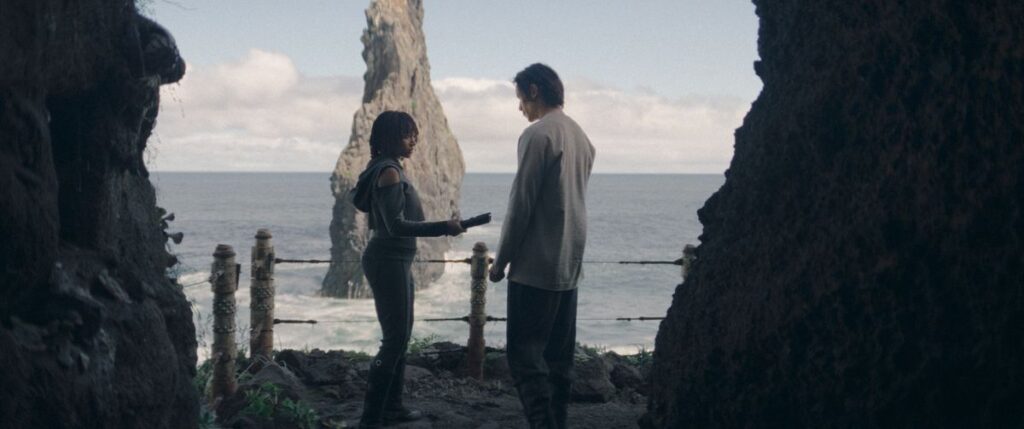The pitch for The Acolyte probably kicked ass. It’s easy to imagine how compelling it looked in brief, on paper: A coven of women who challenge the Jedi’s binary view of The Force. Twin sisters connected to a cosmic Force mystery. An assassin out to kill a bunch of Jedi with a secret. And that secret? Maybe they deserved it. That shit is fire. That’s the beginning of a story I want to see. I don’t quite know what happened to the show that we got.
The problem is a structural one. All of the above elements appear in The Acolyte’s eight episodes, but the manner in which they are introduced and dramatized are haphazard and lacking in care. It’s possible to watch the show and come away with a compelling read on it — partly because David Harewood appears as a senator to just say it out loud in the season finale — but it’s less satisfying as a story, a failing best understood by asking a simple question: Who was The Acolyte about?
An easy answer would be the sisters Mae and Osha (Amandla Stenberg). The plot hinges on their separation from each other and their divergent paths in the ensuing 16 years after the disaster that left them thinking the other is dead. The Acolyte is mostly concerned with the circumstances of their reunion, and the inversion of their initial positions — Mae begins the story as an angry assassin out for revenge, and ends it with her mind wiped, in Jedi custody, the unwitting player her sister was at the start. Conversely, Osha stumbles onto an assassination plot, unaware it’s tied to her personal history, and ends the story where her sister began it: A follower of The Stranger (Manny Jacinto), a rogue that embraces the Dark Side of the Force.
Image: Lucasfilm Ltd.
Mae and Osha’s intersecting journeys are, once again, compelling on paper, but instead of building their characters, The Acolyte’s writers continually burden their relationship with lore: They are not normal humans, but beings manifested by the Force. They are not normal sisters, but one entity split into two bodies. The disaster that killed their coven and separated them for years was not an accident, but a Jedi conspiracy.
Given The Acolyte’s limited real estate, all of this feels like an excess of plot, snuffing out character development in the show’s brief episodes. It trades understanding for answers, and then puts those answers off, to be explored in another season.
Shifting the perspective doesn’t do The Acolyte many favors, either. If we consider it instead to be a show about Sol, the problem remains: His story is full of potential on paper, and plodding in its execution. He is a Jedi whose terrible mistake has come back to haunt him, challenging the lie he has told himself in the intervening years. The groundwork for that mistake, and its fallout, remains off-screen however. We do not understand why he has sudden, immediate connections with Osha and Mae, and why he throws caution to the wind in an effort to recruit them. We don’t understand his standing in the Jedi Order, or what sort of person he is. If we did, then Venestra’s decision to make him the fall guy for the entire sordid affair would maybe mean something.

Image: Lucasfilm Ltd.
Casting about for a character, or characters, to anchor The Acolyte in feels futile, perhaps because The Acolyte’s writers have decided that its first season is merely a prologue, and not in the business of conclusions. Its season finale — also called “The Acolyte” — doesn’t offer resolution so much as it does a number of different versions of the show that we could have seen, or that it might become in the future. Familiar Star Wars presences haunt the edge of the frames, threatening to overtake the story. Context that would have provided a palpable tension to prior events is suddenly introduced, as the Jedi’s conflicts with the government are brought to the fore. A small lie is covered up with a bigger one, and institutional rot takes the center stage.
If there is a second season of The Acolyte, it seems that, much like the first, it has a dream setup, fertile ground to take in countless fascinating directions. Unfortunately, this season has proven The Acolyte isn’t terribly worth following there.

